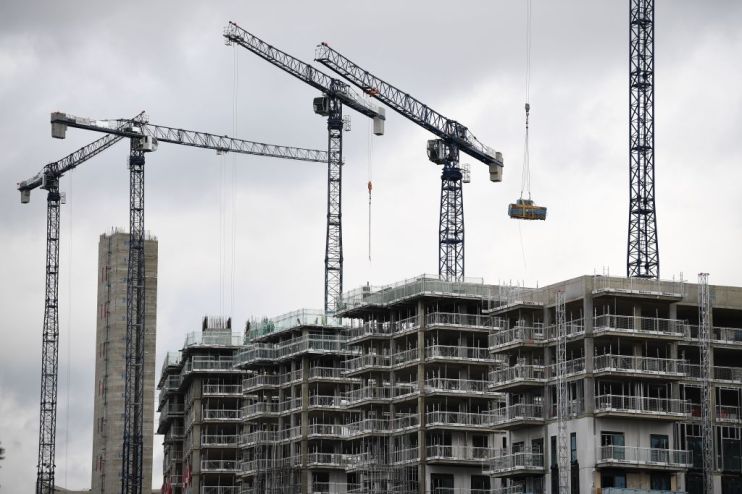UK PMI: Construction sector shows signs of life after election

Output in the UK’s construction sector in January fell at its slowest pace since May of last year, survey data has shown, in a sign of green shoots for Britain’s builders amid lower political uncertainty.
The IHS Markit/Cips gauge of construction output rose to 48.4 in January from 44.4 in December. The reading was still below the 50 no-change mark but was nonetheless the best score for eight months.
Following Boris Johnson’s landslide election victory in December – which led to Britain finally leaving the EU last week – various surveys have shown a rise in optimism and a tick-up in output.
IHS Markit said survey respondents reported rising client demand as some of the political mist rose.
House-building was the best-performing part of the construction sector in January, the data firm said.
Meanwhile, commercial property-building fell for the thirteenth straight month, although at the slowest rate since the start of 2019.
Duncan Brock, Group Director at Cips, the Chartered Institute of Procurement & Supply, said: “Construction firms were more upbeat in January as the downturn in business activity slowed, the trend improved for new work and job losses steadied.”
“The signs are good that the sector is building up momentum for the year ahead and recovering some losses in new work,” he added.
Max Jones, a construction expert at Lloyds Bank, said: “Contractors will be hoping a new decade brings a new dawn following a difficult period that has been permeated by problem contracts, pressures on margins and economic and political uncertainty.”
The survey data came a day after the UK manufacturing sector was shown to have hit a nine-month high in January, adding to signs of an economic recovery in early 2020.
Last week the Bank of England left interest rates on hold at 0.75 per cent, citing a short-term improvement in growth.
Yet it warned that long-term growth would be lower than originally expected as the end of the Brexit transition period, which finishes in December this year, would disrupt the economy.
Brock said there was still uncertainty on the horizon: “The domestic political situation and the UK’s attempt to find its place in the world remains littered with obstacles.”
“The danger remains the sector could easily recoil and shrink again,” he said.